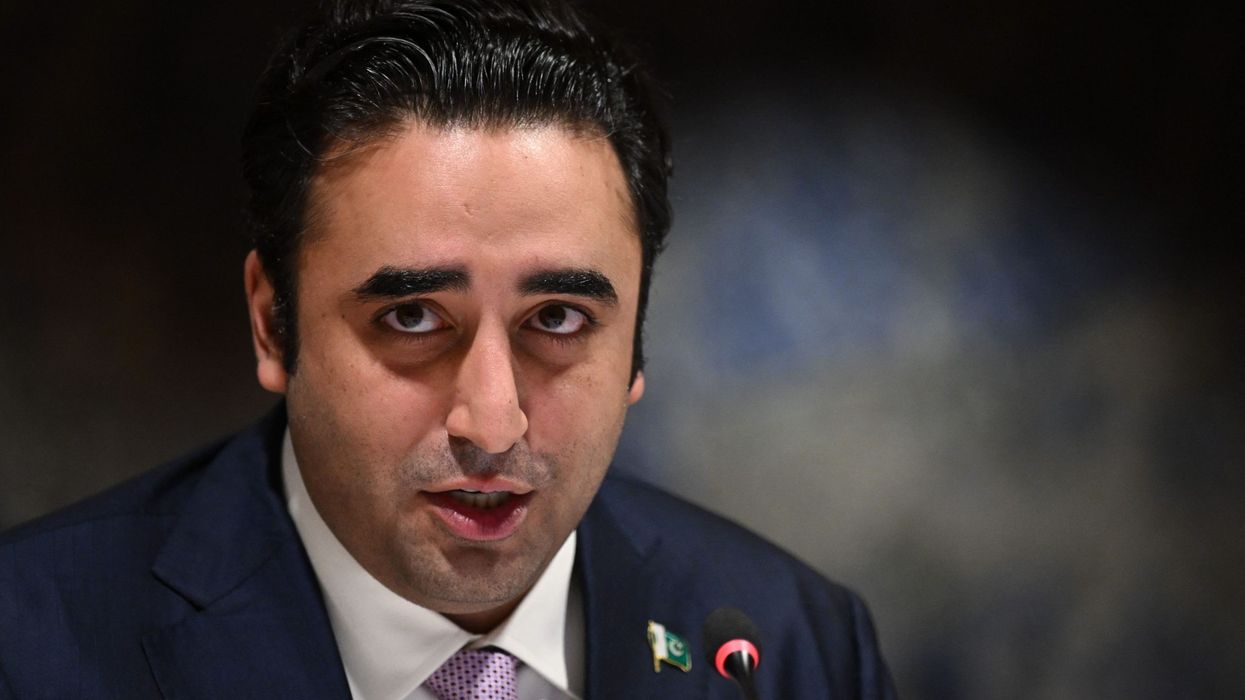THE UN Human Rights Council is heading towards a divisive vote on Wednesday (12) on religious hatred following recent Koran burnings, with some Western nations reluctantly feeling the draft resolution encroaches too far on free speech.
Pakistan and other Organisation of Islamic Cooperation countries secured an urgent debate at the UN's top rights body on Tuesday (11) after a Koran was burnt outside Stockholm's main mosque, triggering a diplomatic backlash across the Muslim world.
Pakistan's draft resolution condemns all manifestations of religious hatred, including "public and premeditated acts of desecration of the Holy Koran", and underscores the need to hold those responsible to account.
It urges states to adopt laws to "address, prevent and prosecute acts and advocacy of religious hatred that constitute incitement to discrimination, hostility or violence".
It also wants the UN rights chief Volker Turk to identify gaps in countries' laws in light of Tuesday's Koran burning debate.
Worried about freedom of expression - however distasteful - some Western nations on the 47-member council were holding out for revised wording that would allow them all to reach a consensus.
But with Pakistan submitting its resolution, the European Union countries, the United States and Britain - while condemning Koran burnings - resigned themselves to a vote instead, with London and Washington saying they would vote against the draft resolution.
After four hours of debate, the council in Geneva was on the brink of voting on Tuesday. However, it narrowly ran out of time, meaning they will return on Wednesday.
'Deliberate desecration'
"The deliberate desecration of the holy Koran has continued under government sanction and with a sense of impunity," Pakistan's foreign minister Bilawal Bhutto Zardari told the council, via video-link.
"Free speech is as indispensable as hate speech should be indefensible. Our vigour to protect free speech must not lose sight of the imperative to reject hate speech."
Indonesian foreign minister Retno Marsudi added: "These provocations deeply insult Muslims around the world. You cannot hide behind freedom of expression."
In a brief intervention, Sweden's representative said Stockholm "strongly rejects any Islamophobic acts".
Some countries feel existing resolutions go far enough.
France's ambassador Jerome Bonnafont noted: "Human rights protect people - not religions, doctrines, beliefs or their symbols.
"It is neither for the United Nations nor for states to define what is sacred."
Opening the debate, UN rights chief Turk said recent Koran-burning incidents seemingly "manufactured to express contempt and inflame anger".
"Powered by the tidal forces of social media... hate speech of every kind is rising, everywhere," he said.
Turk said that "people need to act with respect for others", with inflammatory acts against religions being "offensive, irresponsible and wrong".
But, he stressed, limitations on free speech "must, as a matter of fundamental principle, remain an exception".
Western hopes for consensus
US ambassador Michele Taylor said she had "so hoped" the council could "speak with one consensus voice".
"While we abhor expressions of religious hatred, we do not believe freedom of expression can or should be abridged to outlaw them. Accordingly, we regret that we must vote against this text," she said.
British ambassador Simon Manley said it was difficult to determine where free speech becomes unacceptable.
"We don't accept that, by definition, attacks on religion, including our religious texts or symbols, constitute advocacy for hatred," he concluded.
Belgium's ambassador Marc Pecsteen, speaking for the EU, deeply regretted there was "no will" to keep negotiating for a consensus and the bloc therefore "has no other choice than to ask for a vote".
On June 28 in Stockholm, Salwan Momika, 37, who fled from Iraq to Sweden several years ago, stomped on the Muslim holy book and set several pages alight.
His actions came as Muslims around the world began marking the Eid al-Adha holiday.
The Swedish government condemned the Koran burning as "Islamophobic" but added that Sweden had a "constitutionally-protected right to freedom of assembly, expression and demonstration".
(AFP)




